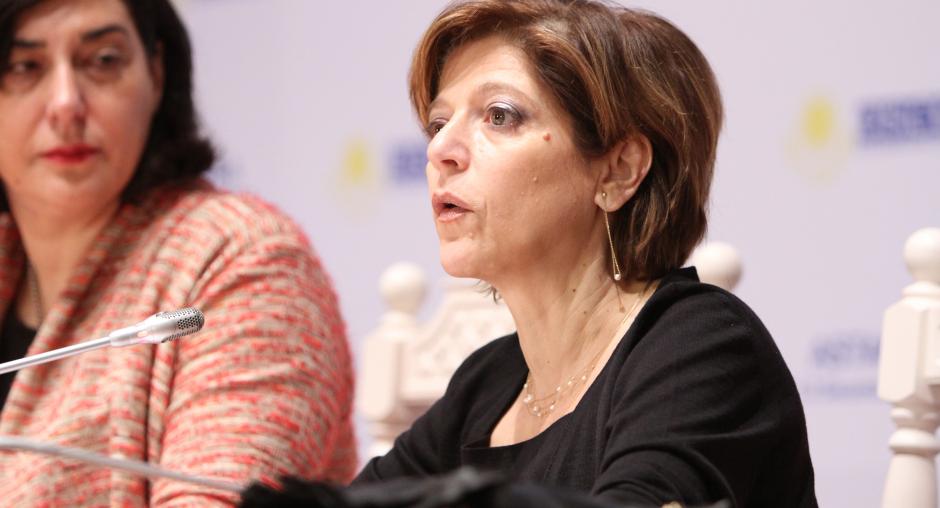OSCE Special Representative calls for better protection of trafficking victims' rights in criminal proceedings

ROME, 2 February 2011 – Courts should protect trafficked persons' rights and enable them to take an active role throughout criminal proceedings, said Maria Grazia Giammarinaro, OSCE Special Representative and Co-ordinator for Combating Trafficking in Human Beings today in a high-level roundtable meeting organized by the Italian National Judicial Council.
“Vulnerability is not a connotation of being woman. Female victims of trafficking are often strong women who decided to face migration and all related difficulties to look for better opportunities to improve their lives and those of their families,” she said.
“Factors which make these women vulnerable include the role of women in society in both countries of origin and countries of destination, the lack of gender-sensitive migration channels, stigmatization of prostitution and the undervalued status of work carried out by women, especially domestic work.”
“Victims are human beings who have pursued their projects and aspirations, and will often continue to strive towards realizing them. They should have the right to regain ownership on their lives throughout the criminal proceedings and the trial. Instead, in many cases they face secondary victimization owing to the inappropriate management of administrative and penal procedures.”
Giammarinaro outlined that in all forms of trafficking in human beings based on abuse of a position of vulnerability traffickers create or take advantage of a situation of multiple dependencies of the victims, including their social isolation.
Because trafficking is often not prosecuted as such, but rather according to indictment for much less serious crimes, she called for broader criteria to identify trafficking cases. Prosecution is still insufficient in cases of trafficking carried out by subtle forms of coercion. “Therefore I'm determined to work closely with the judiciary in the field of capacity building” she said.
Giammarinaro also told the meeting that she welcomed the holistic approach of the recently adopted EU Directive on preventing and combating trafficking in human beings, and protecting victims, as one of the most interesting pieces of legislation in the context of protection of victims’ rights.
“The EU Directive is very innovative as far as support measures are concerned. For the first time, victims’ rights include not only protection during the criminal proceedings, but also social, medical and psychological support before a criminal proceeding has been initiated, as soon as there is an indication that the person might have been trafficked. After the conclusion of criminal proceedings, assistance measures aim at enabling victims to access to civil remedies, including compensation,” she said.
